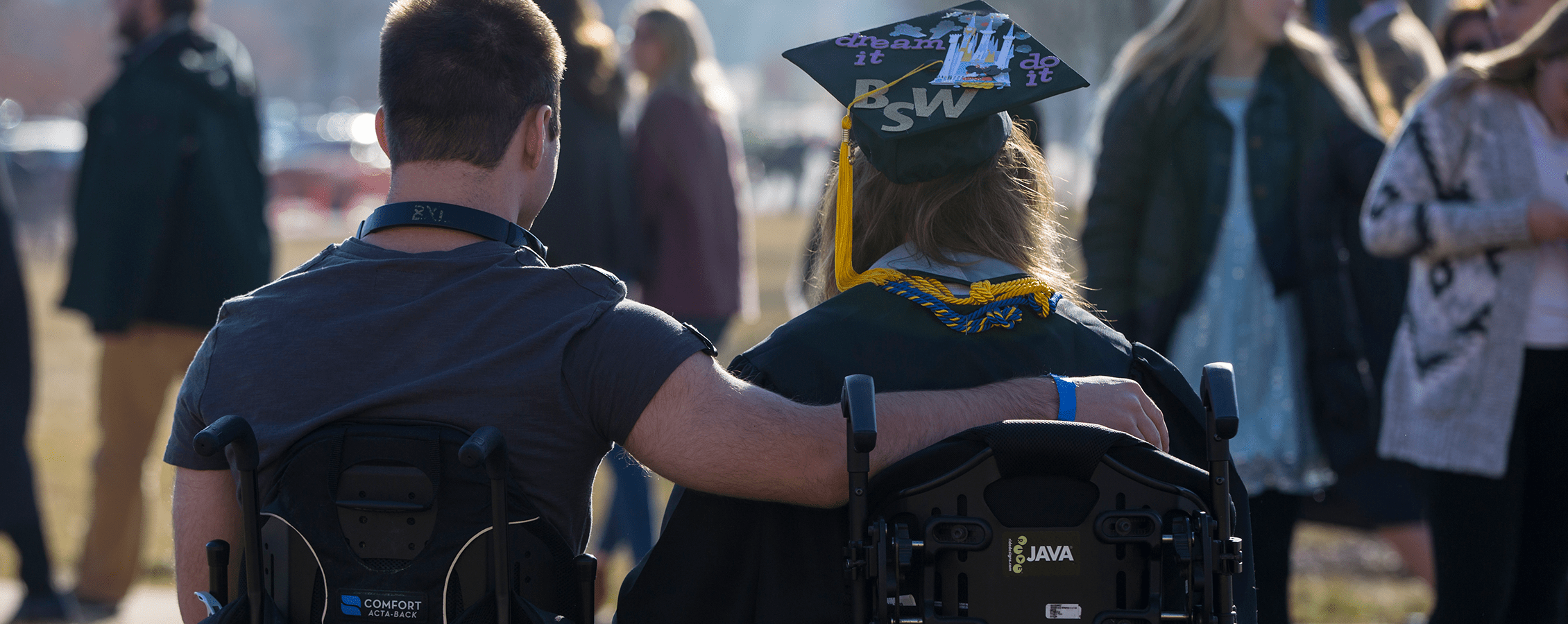DEPARTMENT OF SOCIAL WORK
The University of Wisconsin Department of Social Work has a long tradition of preparing students to be exceptional professionals who facilitate change with vulnerable and diverse individuals, families, and communities and promote social justice for all. The department offers Bachelor of Social Work (BSW) program and Master of Social Work (MSW) program, both of which are fully accredited by the Council on Social Work Education (CSWE). The department also offers Human and Social Services minor (undergraduate) and several certificate programs. The department boast a vibrant group of faculty who are committed to student success with research and practice experience in various social work fields. Social work students gain the knowledge, values, and skills necessary to become competent and ethical practitioners through a variety of learning experiences both inside and outside the classroom, including experiential learning, community engagement, and participation in student organizations such as Social Work Student Organization (SWSO).
Our Bachelor of Social Work (BSW) program's mission is to prepare students to be skilled generalist social work professionals by providing foundational knowledge in liberal arts, a person-in-environment approach, social work values and skills, and scientific inquiry. The BSW program offers undergraduate BA and BS degrees in Social Work, both in face-to-face, online, or Hybrid. The program also offers flexible pathways to the completion of social degree for transfer students. Students may declare a Social Work major any time; however, students must be formally admitted into the Social Work Professional Training Program by application before taking SOCWORK 371 (Practice 1). BSW students complete 480 hours of field internship usually during their last semester as a part of the rigorous program coursework.
Our Master of Social Work (MSW) program’s mission is to prepare students to be advanced social work professionals skilled in developing collaborative relationships and implementing evidence-based interventions, building on their knowledge in liberal arts, person-in-environment approach, and scientific inquiry. Both out face-to-face and online MSW programs ensure a high-quality and accessible path to your advanced social work degree and licensure.
Contact us
Ellie Schemenauer
Department Chair & Associate Professor
Phone: 262-472-2872
Location: Laurentide Hall 5205
Kristen Prock
MSW Program Coordinator & Associate Professor
Phone: 262-472-5150
Location: Laurentide Hall 5211
Deanna Guthrie
BSW Program Coordinator & Associate Professor
Phone: 262-472-1881
Location: Laurentide Hall 5209
Holly Kollwelter
Field Education Coordinator
Phone: 262-472-1478
Location: Laurentide Hall 5215
Susan Morris
Department Assistant
Phone: 262-472-1137
Location: Laurentide Hall 5201
- Zastrow Scholarship
- Navarre Memorial Scholarship for Service
- Casey Garbers Knutson Scholarship
- Dorothy Brown Memorial Social Work Scholarship
More information about these and other scholarships is available through the scholarship portal.
The UW-Whitewater Social Work Department is fully accredited by the Council on Social Work Education (CSWE). The College of Letters and Sciences at UW-Whitewater is accredited by the North Central Association of Colleges and Secondary Schools.
All Council on Social Work Education (CSWE) programs measure and report student learning outcomes. Students are assessed on their mastery of the competencies that comprise the accreditation standards of the CSWE. These competencies are dimensions of social work practice that all social workers are expected to master during their professional training. A measurement benchmark is set by the social work program for each competency. An assessment score at or above that benchmark is considered by the program to represent mastery of that particular competency.
University of Wisconsin-Whitewater Baccalaureate Social Work Program
Assessment of Student Learning Outcomes
Last completed on 07/2024
Council on Social Work Education - Form AS 4(B) - See most recent BSW data here [pdf]
University of Wisconsin-Whitewater Master of Social Work Program
Assessment of Student Learning Outcomes
Last completed on 07/2024
Council on Social Work Education - Form AS 4(M) – See most recent MSW data here [pdf]
Field Program
The field experience is an important required component of both the bachelors of social work (BSW) and masters of social work (MSW) programs at the University of Wisconsin-Whitewater (UWW). Many social service agencies in Wisconsin are partnered with UWW to provide students with a high quality social work field experience. A supervised field experience provides students with opportunities to apply learned knowledge, values, and skills to real life practice situations. Exposure to practice situations helps students grow their generalist practice skills and prepare them to successfully work a variety of client populations and systems.
BSW and MSW Field Handbooks can be found under the Resources tab.
Students interested in enrolling in the field program must first successfully complete all required social work courses. Students are required to apply for field placement the semester prior to taking field. You are then assigned a Faculty Field Liaison who works with you to secure a field placement. BSW Students are required to complete 480 field experience hours at a social service agency under the supervision of a bachelors level (BSW) or masters level (MSW) practicing social worker. The practicing social worker, called the Field Instructor, provides the student with broad exposure to social work roles and responsibilities.
The majority of social work students complete the field experience over the course of one semester. This format requires the student to work approximately 32 hours a week. Those students who complete their field experience over the course of two semesters will work approximately 16-20 hours per week. Students who wish to complete their field experience over the summer, will work approximately 40 hours a week over the 12-week summer session.
* SOCWORK 493-Social Work Experience (Field Placement) is not available online as part of an online degree. Students complete this course in-person at a social services agency.
Advanced Generalist Standing MSW Students are required to complete 500 field experience hours at a social service agency under the supervision of a masters level (MSW) practicing social worker. The practicing social worker, called the Field Instructor, provides the student with exposure to advanced generalist social work practice.The field practicum is completed over the course of one academic year. This format requires the student to work approximately 16 hours a week plus an additional 2-hour integrative seminar each week. Non-advanced Standing MSW Students are required to complete a total of 980 field experience hours over two academic years. The first year of field experience is intended to provide students with broad exposure to social work roles and responsibilities. The final field placement, second year for non-advanced standing and first year for advanced standing, will be grounded in advanced generalist practice. All field experience will be completed at a social service agency under the supervision of a masters level (MSW) practicing social worker, called a Field Instructor. Students enrolling in field practicum, are required to review the Department of Social Work Masters in Social Work Field Program Manual for Field Students, Faculty, and Instructors. You will be sent a Request for Field Application via a Qualtrics Survey and then assigned a Faculty Field Liaison who will work with you in the placement process. Once your field placement is secured, you are sent another Qualtrics Survey (face sheet) to provide information for your Faculty Field Liaison/social work department about your field site.
Social service agencies that employ bachelors level (BSW) or masters level social workers (MSW) and that are interested in providing social work students with field placement opportunities are encouraged to contact our Field Education Coordinator, Holly Kollwelter, LCSW at kollwelh@uww.edu.
The Department of Social Work supports a number of student clubs and organizations.
Social work as a major was initiated in 1971. The program was then housed in the Department of Sociology-Anthropology. The program was separated as an “area” in 1973 and became a separate department (Department of Social Welfare) in 1975. Several years later, the Department was renamed the Department of Social Work, and in 1974, the undergraduate program was accredited by the Council on Social Work Education (CSWE). The program has continued to be accredited by CSWE since 1974. Currently, the Bachelor of Social Work (BSW) program at UW-Whitewater offers BA and BS degrees in Social Work. The Department also offer Master of Social Work (MSW) program. Both BSW and MSW programs offer a fully online program option.
Please contact the Social Work Department for more information.
Please contact the Social Work Department for more information.
The University of Wisconsin-Whitewater Bachelor's in Social Work program prepares students to be skilled generalist social work professionals by providing foundational knowledge in liberal arts, a person-in-environment approach, social work values and skills, and scientific inquiry. Through this preparation, students develop the skills necessary to engage, assess, and intervene with vulnerable and diverse individuals, groups, families, organizations, and communities, and promote social justice and the equality of life for all.
Program Goals:
- Assist students (through coursework, advising, field education, and programming which includes student organizations, undergraduate research, etc.) in acquiring the necessary knowledge, values, and skills to graduate as beginning generalist social workers who practice with cultural humility.
- Prepare students to demonstrate personal and professional integrity consistent with the NASW Professional Standards and Code of Ethics.
- Teach students to advocate for all human rights and to stand up for marginalized and oppressed individuals, families, groups, organizations, and communities using a diversity, equality, and inclusion approach.
- Partner students with social service agencies where they will collaborate with the agencies to promote effective and culturally sensitive social work practice.
- Encourage students to engage with faculty in scholarly and creative activity, especially in areas that enhance social work practice, social welfare policy, and social work education for all.
The University of Wisconsin-Whitewater Master of Social Work program prepares students to be advanced social work professionals skilled in developing collaborative relationships and implementing evidence-based interventions, building on their knowledge in liberal arts, person-in-environment approach, and scientific inquiry. Through this preparation, students develop advanced practice, intervention and evaluation social work skills to work within dynamic local, regional, and national contexts to address diverse human and community issues affecting the quality of life and to promote social, racial, economic, and environmental justice.
Program Goals:
- Train students, through coursework, field education, and advising, to advance their knowledge, develop strong professional values and ethics, and be able to apply a range of prevention and intervention methods.
- Prepare students to advocate for all human rights and to stand up for marginalized and oppressed individuals, families, groups, organizations, and
- Teach students to engage in evidence-informed practices.
- Partner students with community partners to accomplish mutual goals based on evidence-based interventions and practices.
- Engage students in opportunities to work in partnership with faculty who are actively engaged in practice, service, and research.
Students may declare a Social Work major at any time. However, entry into the Social Work Professional Training Program is by application only. Students must be formally admitted into the professional training program before they may enroll in SOCWORK 371, so you should apply the semester before you plan to take SOCWORK 371 - Practice I.
If you plan to take SOCWORK 371 in the summer or fall, please apply March 15-30.
If you plan to take SOCWORK 371 in the spring, please apply November 1-15.
You should apply at least two weeks before your designated priority registration time because it may take up to two weeks for your application to be reviewed and for you to receive an email about your application (acceptance/rejection).
Please see admission criteria and application.
Explore our academic programs
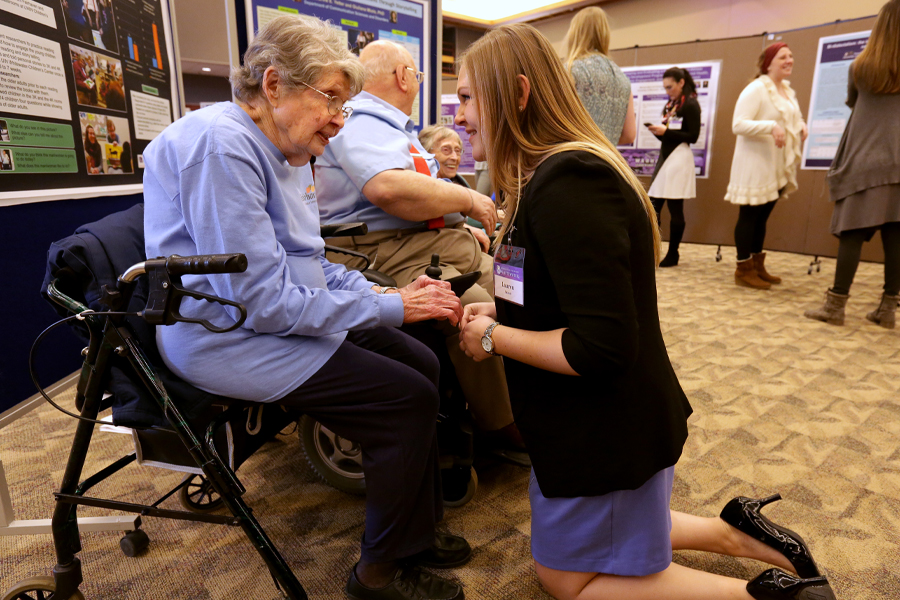
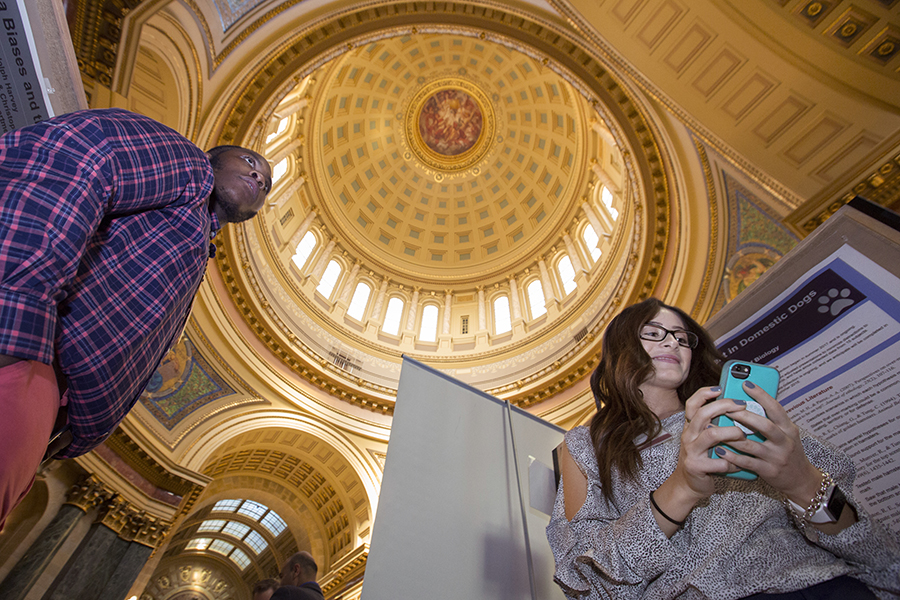
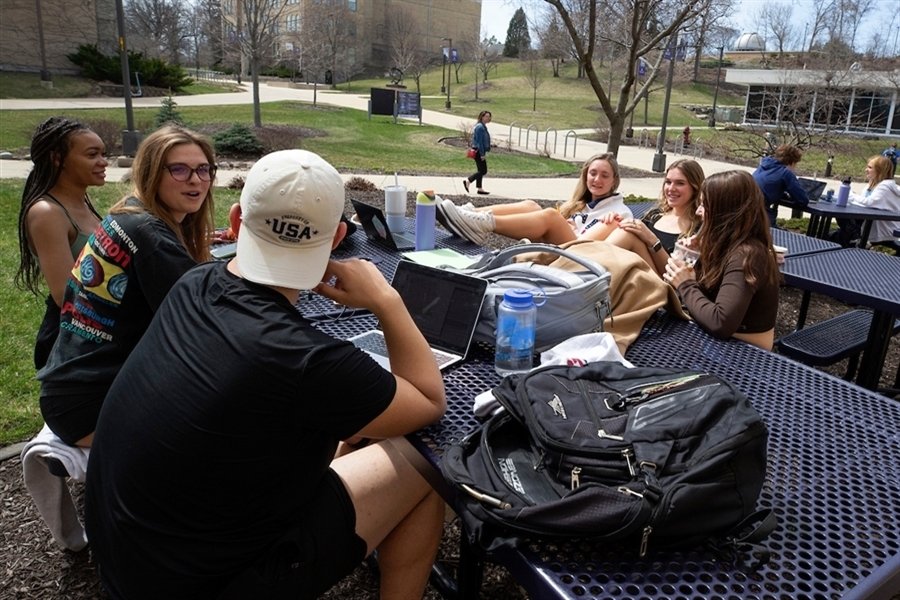
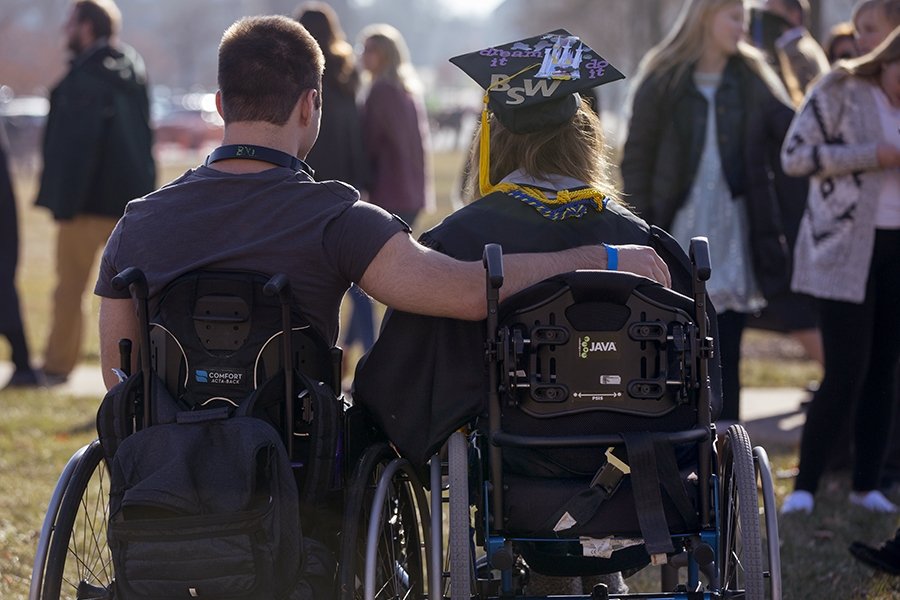
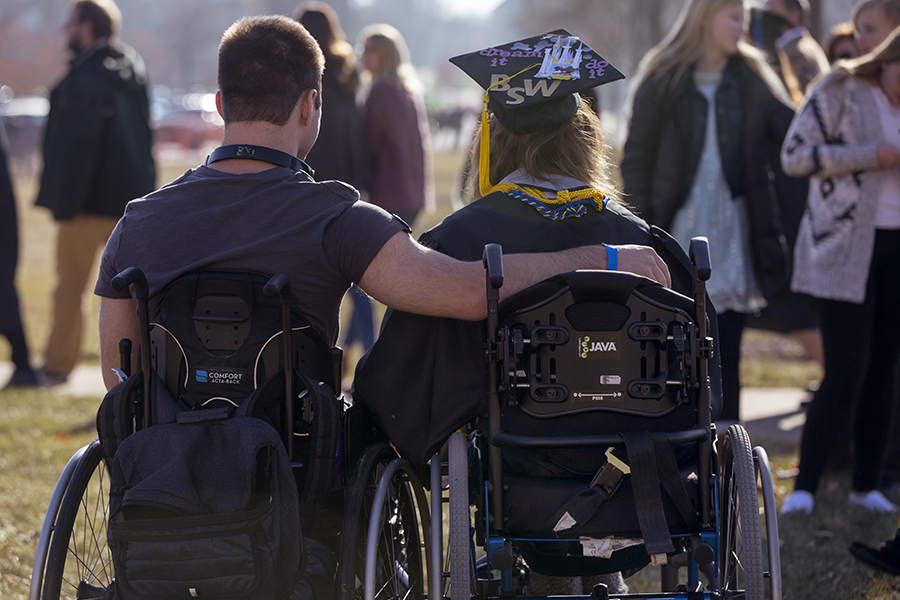
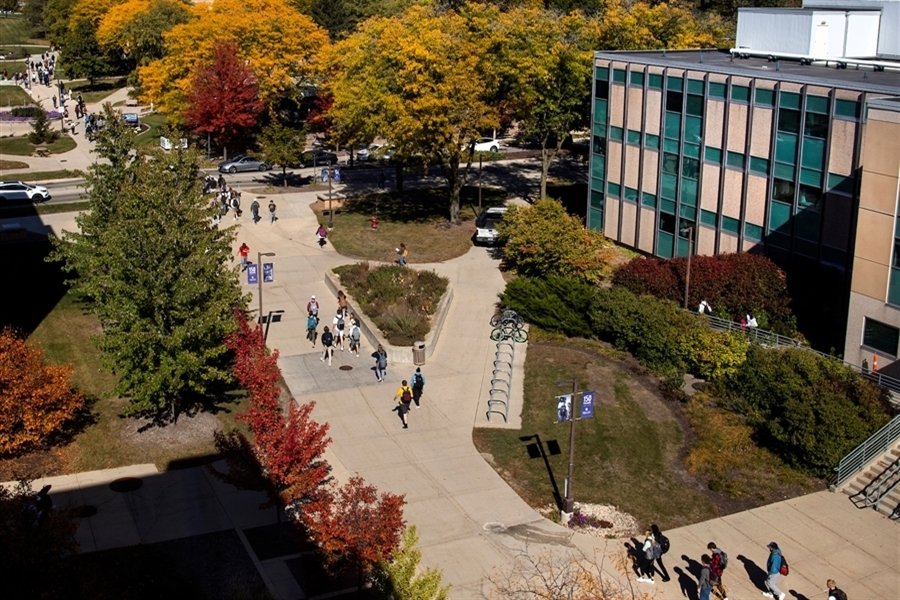
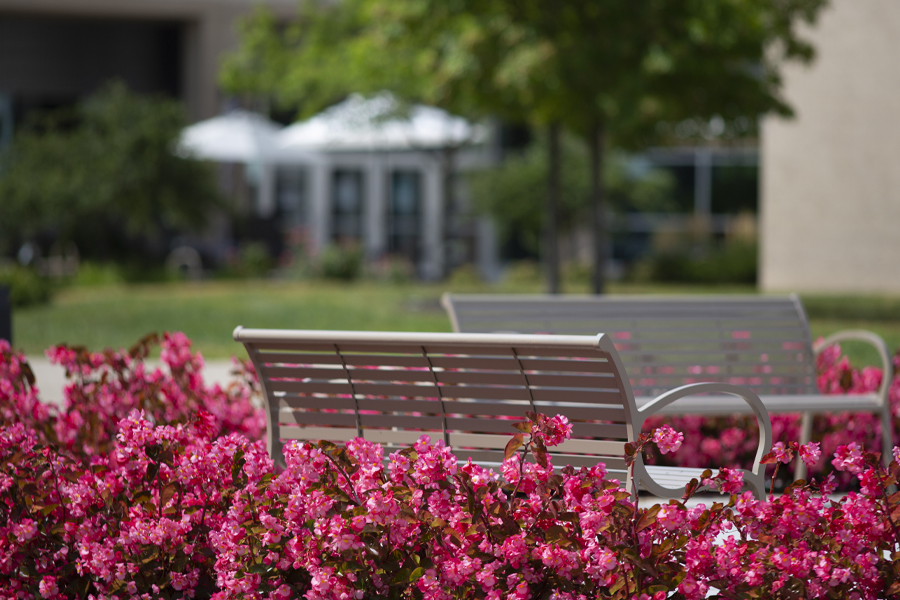
Aging and Health
Certificate (Undergraduate)The aging and health certificate teaches students foundational knowledge and skills needed to effectively work in careers with older adults and support their multidimensional health needs.
Human and Social Services
MinorLearn how to help others regarding their safety and social/emotional well-being with a minor in Human and Social Services. You will study the ins and outs of social work, humanities, and many forms of social sciences in order to prepare you for a career in aiding the public.
School Social Work
The graduate certificate in School Social Work equips you with the specialized skills and knowledge to support students' social, emotional, and behavioral needs that can hinder their learning and development.
School Social Work (Post MSW)
The post-master's graduate certificate in School Social Work is designed for individuals who have already obtained a master's degree in Social Work and are interested in school social work.
Social Work
Major/Emphasis, Master'sIf you’re passionate about dedicating your life to improving the lives of others, then perhaps a social work path is where you belong. With 37 credit hours of concentrated studies in social work and an in-depth field placement experience with a community agency, this program will leave you with a solid foundation for a successful and rewarding career.
Substance Abuse Counseling
The graduate certificate in Substance Abuse Counseling provides the specialized knowledge and practical skills needed to excel in this rewarding field.
Substance Use Foundations
Certificate (Undergraduate)The Substance Use Foundations Certificate will cover content areas that are infused with information and application to practice that is responsive to the characteristics of individual, group, family, and couple clients and significant others seeking substance use disorder treatment.
Donate
Your gift to the Social Work program helps us prepare the next generation of social workers to make a lasting impact in their communities. Contributions directly support student scholarships, field placements, community partnerships, extracurricular activities, and innovative learning opportunities that strengthen both our students and the people they serve.
Donate today to invest in compassionate leaders who will advance equity, justice, and well-being for individuals and families for years to come.
What does my contribution directly support?
How much money can make an impact?
Donate now to support the Department of Social Work at UW-Whitewater
If you're interested in starting a scholarship or making a pledge, please contact the UW-Whitewater Foundation, Inc at 262-472-1105 or through email at foundation@uww.edu.

